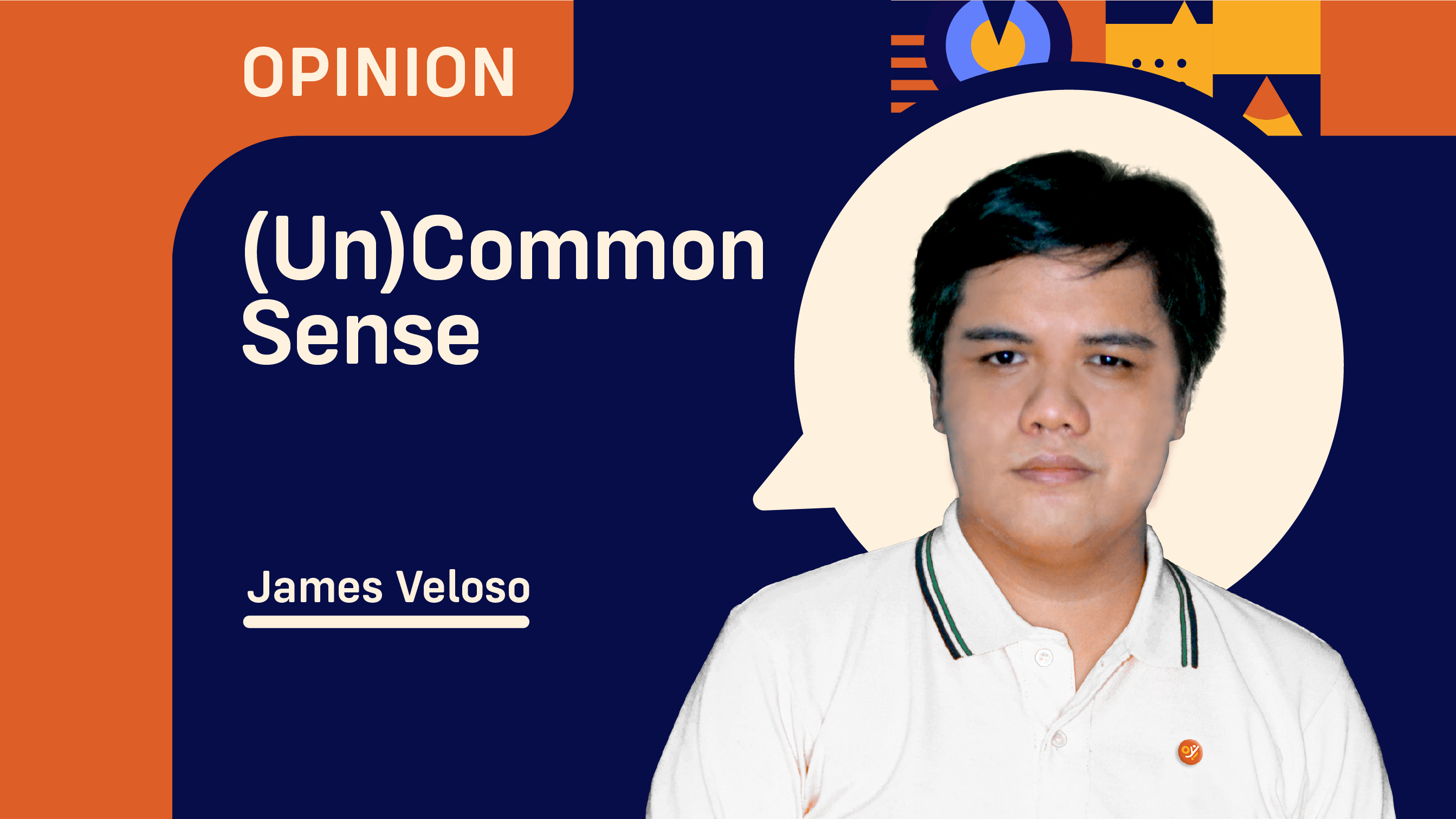Iniibig ko ang Pilipinas. Ito ang aking lupang sinilangan. Ito ang tahanan ng aking lahi. Ako'y kanyang kinukupkop at tinutulungan Upang maging malakas, maligaya at kapakipakinabang. Bilang ganti, ay diringgin ko ang payo ng aking mga magulang Susundin ko ang mga tuntunin ng aking paaralan Tutuparin ko ang mga tungkulin ng isang mamamayang makabayan at masunurin sa batas. Paglilingkuran ko ang aking bayan nang walang pag-iimbot at ng buong katapatan. Sisikapin kong maging isang tunay na Pilipino sa isip, sa salita, at sa gawa.
If you can still recite that old version of the Panatang Makabayan (which was enacted in 1955), you probably had grandkids by now, or on the verge of being a hypochondriac.
To tell the truth, that was NOT the version I learned when I started my schooling in 2000.
What I got to learn is the current version that was put in place by what was then the Department of Education, Culture and Sports (DECS) sometime in 2001.
It's one of those things (aside from the National Anthem) that children can recite point-blank every Monday during the flag-raising ceremony but are wont to forget as they become grown-ups.
-o0o-
Recently, the Panatang Makabayan is back in the news – due to a change of one single word.
In case you didn't hear it, Vice President and Education Secretary Sara Duterte has approved last week a tiny change of words in the Panatang Makabayan that's currently being used in schools. Just one word - from "nagdarasal" to "nananalangin."
The rationale behind the change, according to DepEd officials, is that they want the Panatang Makabayan to be “more inclusive” and more sensitive to the customs and traditions of Muslims and Indigenous Peoples.
"With these consultations, the (Office of the Undersecretary for Curriculum and Teaching) recommended that ‘nananalangin’ be used instead of ‘nagdarasal’ primarily because the ‘nananalangin’ is inherent and integral in Filipino identities as it is rooted in Tagalog,” the order read. “Likewise, it is more inclusive and appropriate as it does not refer to or specify religions, and at the same time, it encompasses indigenous belief systems.”
-o0o-
Changing single words or phrases on national symbols are often a point of conflict between liberals who aim for a “more inclusive” world and conservatives who claim “wokeness” has eroded the symbols that uphold patriotism and love of country.
In Canada, for instance, a decision made by the government to make its national anthem, “O Canada,” gender-neutral (at least four words were changed) sparked a debate, with liberals saying the move was long-overdue (complaints about its “exclusivity” date back from when it was adopted in the 19th century) and conservatives slamming feminists who, they claimed, want to destroy a sacred symbol of the nation.
Heck, here in the Philippines we’ve had had those kinds of controversies as well.
For example, former Senate President Vicente “Tito” Sotto III’s push to change the last lyric of the National Anthem as he felt it’s “too negative” drew caustic remarks, especially in light of China’s continued aggressive actions in the West Philippine Sea.
National symbols, let’s face it, are often tricky to replace or change, as they’re not just simply “symbols” but are considered the heart and soul of our country, a representation of the values its citizens hold.
But here’s a thing: yeah, we’re outraged about changing a few words in our national symbols, but are we really making serious efforts to follow the values they represent in our day-to-day living?

